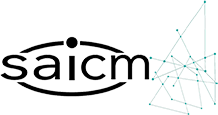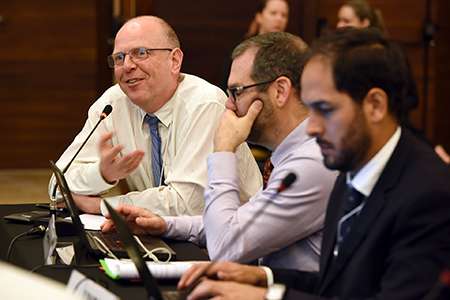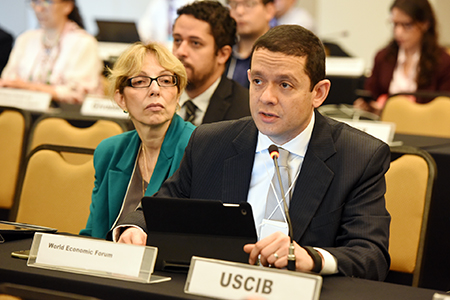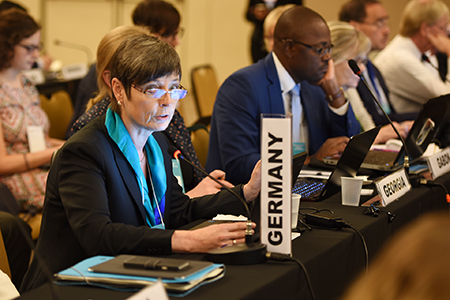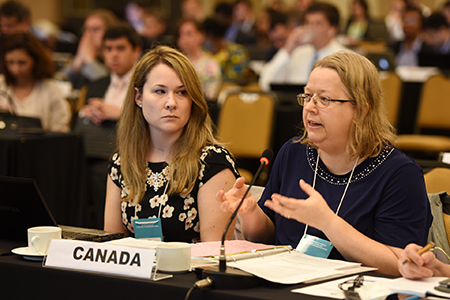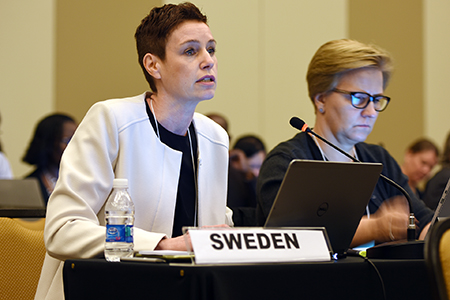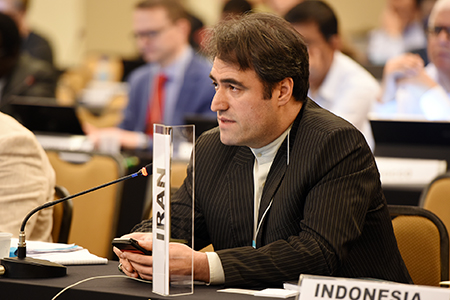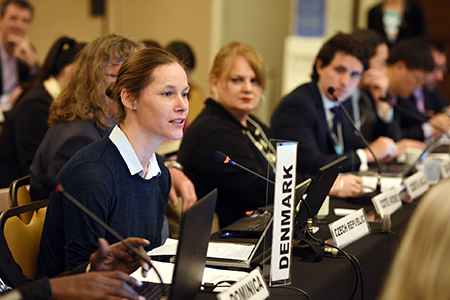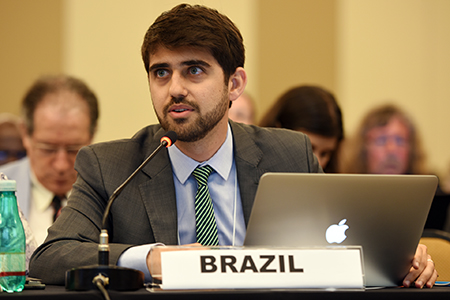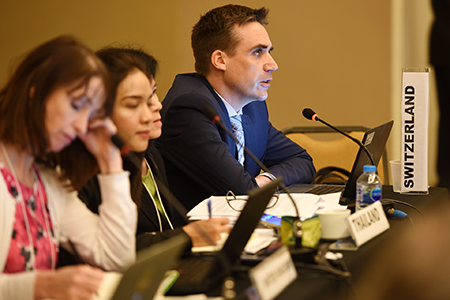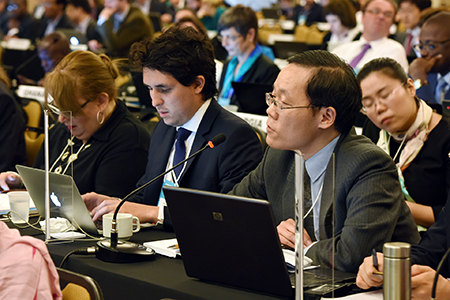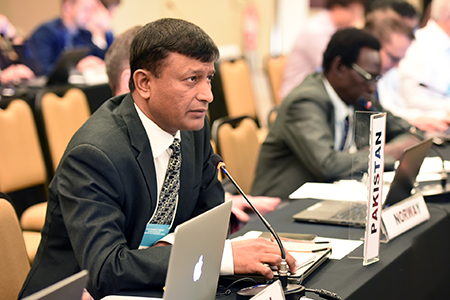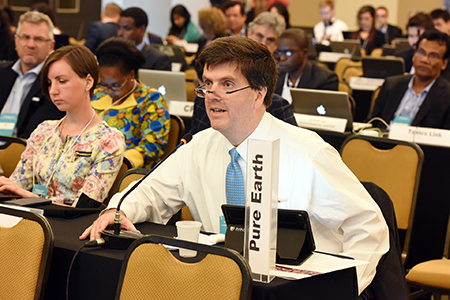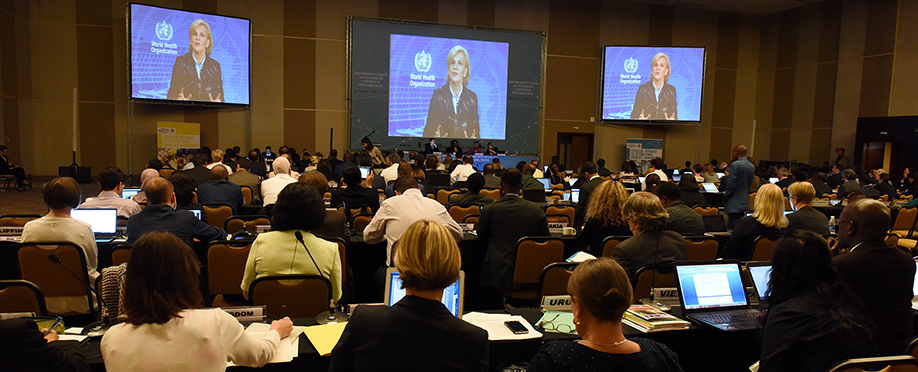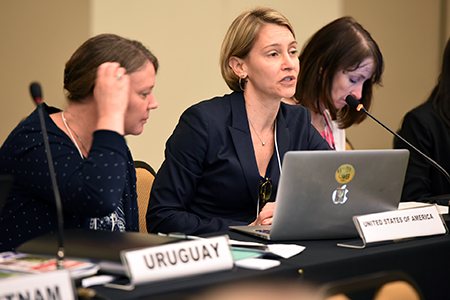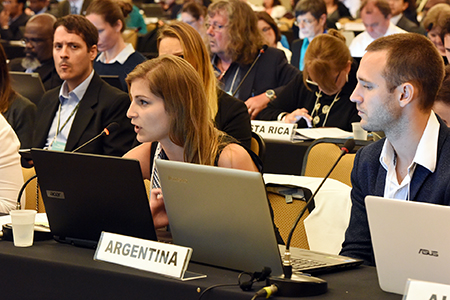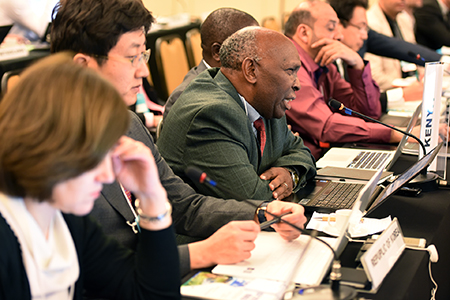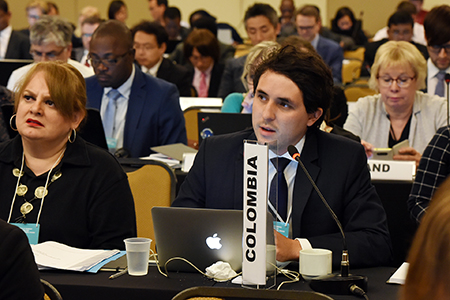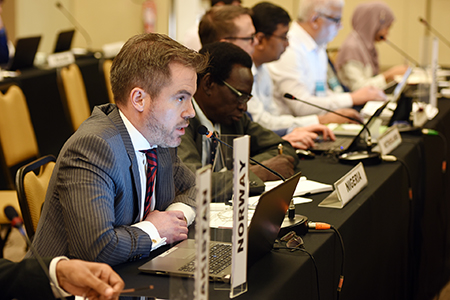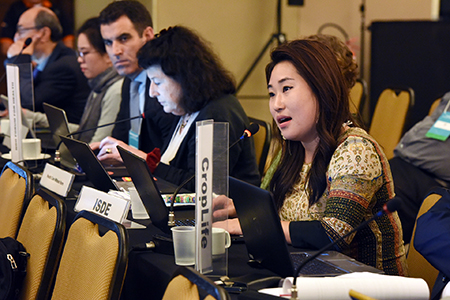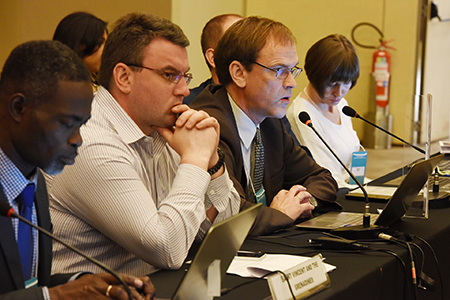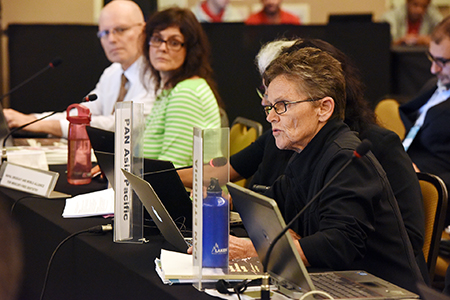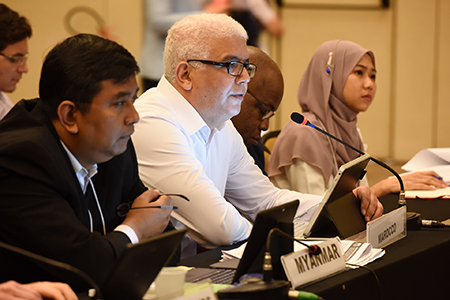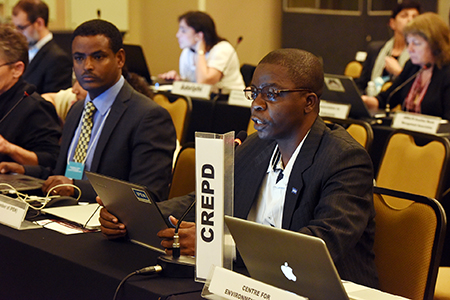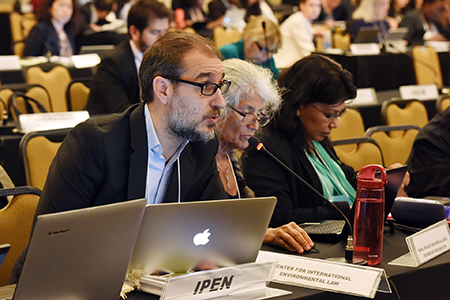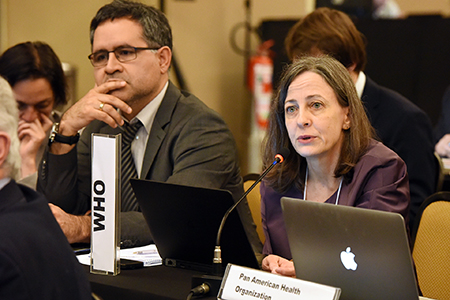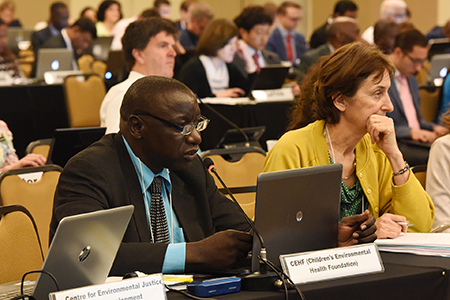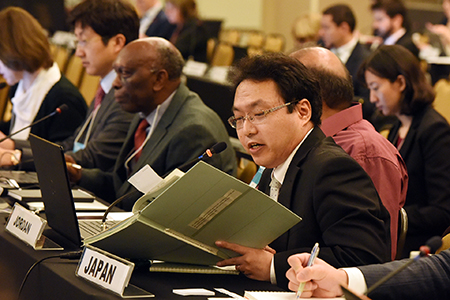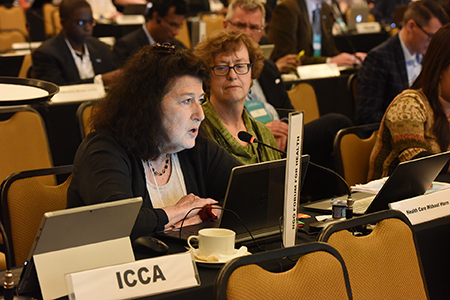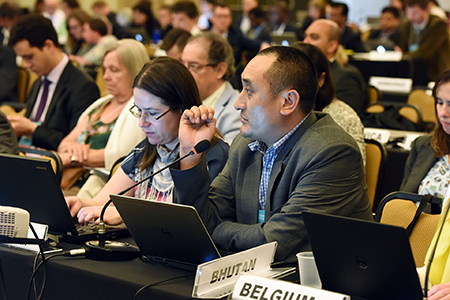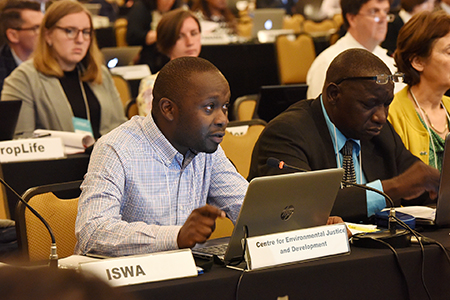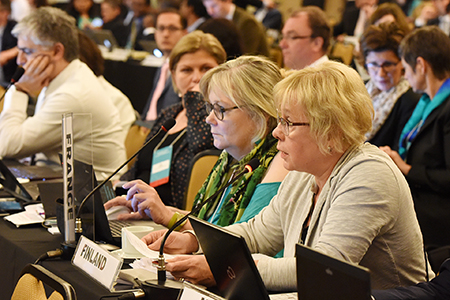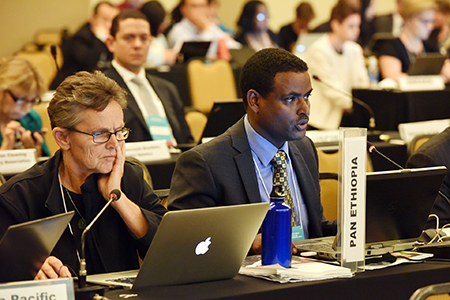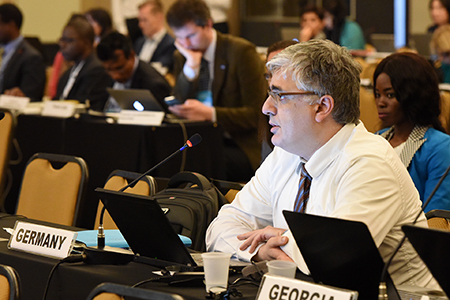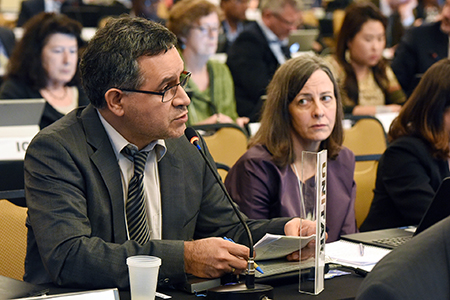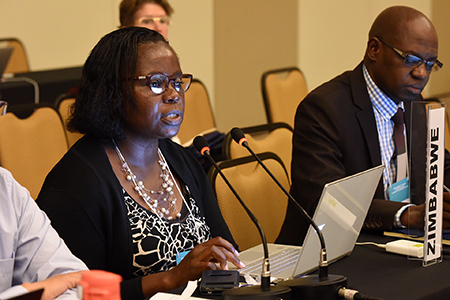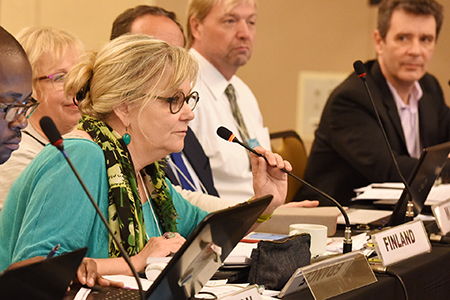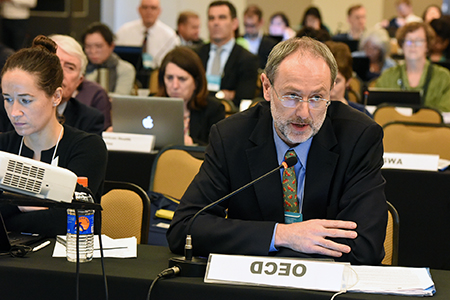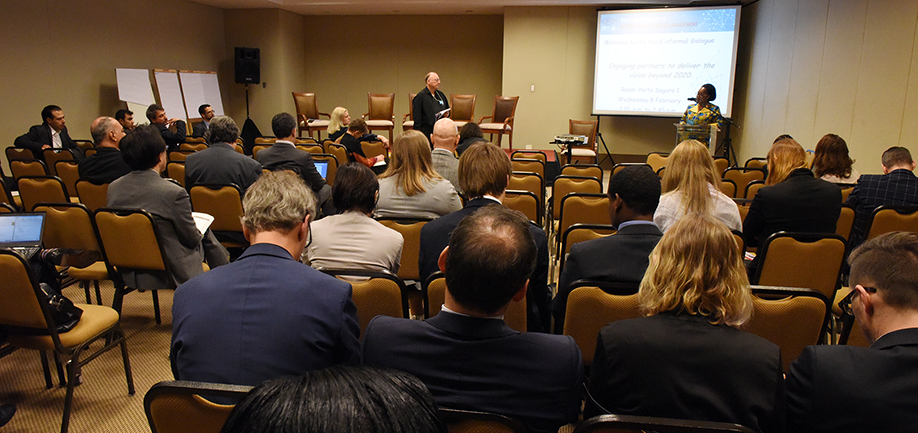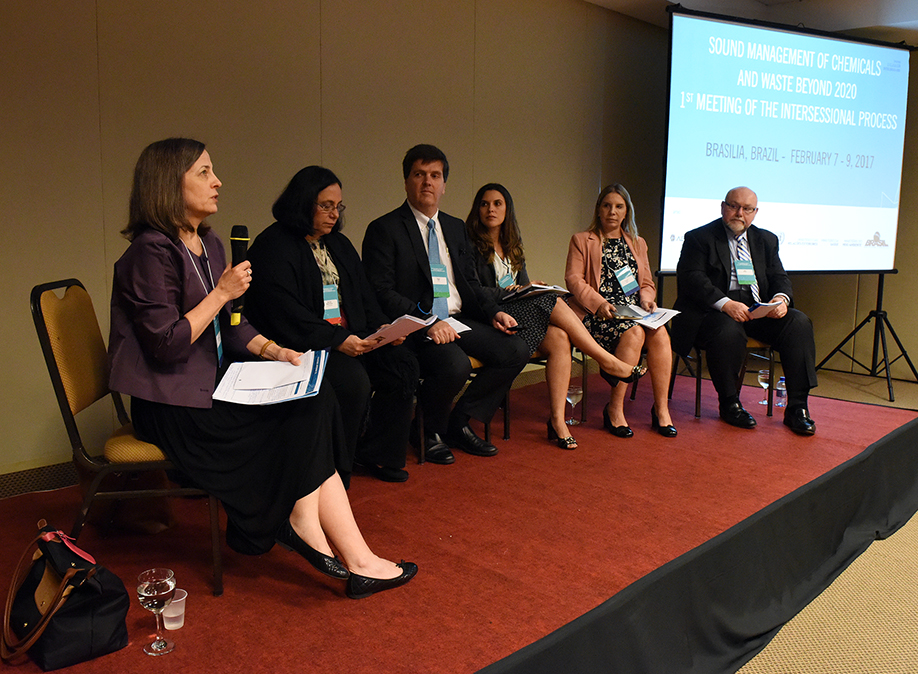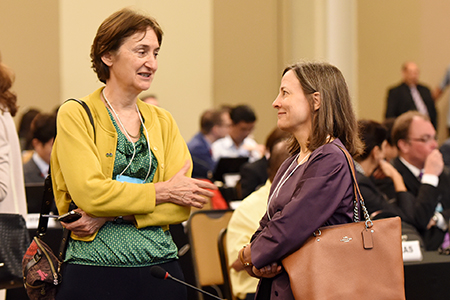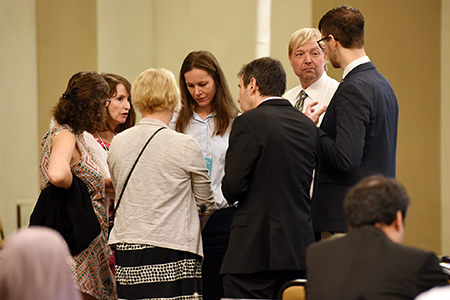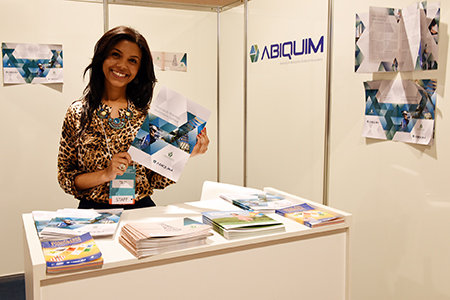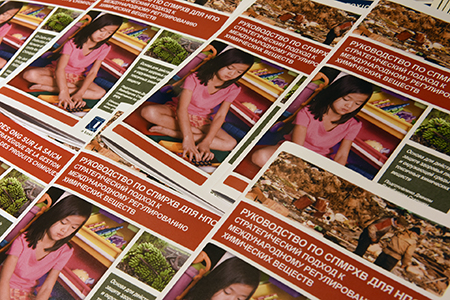Summary
The First Meeting of the Intersessional Process for Considering SAICM and the Sound Management of Chemicals and Waste Beyond 2020 entered its second day of discussions today in Brasilia, Brazil.
The morning session opened with summaries of key points by the moderators of the two informal dialogues held the previous day on the themes “Looking ahead – SAICM and sound management of chemicals and waste in the light of future developments” and “Challenges and opportunities for sustainable chemistry to contribute to sustainable development.”
The plenary throughout the rest of the day focused on in-depth discussions of agenda item 5, “Beyond 2020,” in terms of: vision and scope; the voluntary, multi-stakeholder and multi-sectoral approach currently used by SAICM; responding to new and emerging issues; and financing implementation of the sound management of chemicals and waste.
Before and after the plenary, focus groups were held to provide input from regional groups to the consultant preparing the independent evaluation of SAICM.
During the lunch hour two more informal dialogues were held on the themes “Engaging partners to deliver the vision beyond 2020” and “Responding to a changing world: Addressing urgent and emerging issues.”
IISD Reporting Services, through its Earth Negotiations Bulletin (ENB) Meeting Coverage, has provided daily web coverage from the 1st Meeting of the Intersessional Process for Considering SAICM and the Sound Management of Chemicals and Waste Beyond 2020. In addition, IISD Reporting Services has produced a summary and analysis report of the meeting, which is available in HTML and PDF.
Photos by IISD/ENB | Diego Noguera
For photo reprint permissions, please follow instructions at our Attribution Regulations for Meeting Photo Usage Page.
Plenary
A view of the room during plenary
Achim Halpaap (left), UN Environment, and Fernando J. Gómez, World Economic Forum, report on Tuesday’s informal dialogues
Co-Chair David Morin, Health Canada, and Brenda Koekkoek, SAICM Secretariat
Jorge Peydro Aznar, EU
Jutta Emig, Germany
Alison Kennedy and Suzanne Leppinen, Canada
Sofia Tingstorp, Sweden
Heidar Ali Balouji, Iran
Rikke Holmberg, Denmark
Vinicius Trindade, Brazil
Felix Wertli, Switzerland
Jianhong Meng, China
Iftikhar-ul-Hassan Shah Gilani, Pakistan
Richard Fuller, Pure Earth
Maria Neira, World Health Organization (WHO), addressed delegates via a video message
Rowena Watson, US
María Florencia Grimalt, Argentina
Francis Kihumba, Kenya
Juan Gómez, Colombia
Sverre Thomas Jahre, Norway
Somang Yang, CropLife
Vladimir Lenev, Russian Federation
Meriel Watts, PAN Asia Pacific
Rachid Wahabi, Morocco
Gilbert Kuepouo, Research and Education Centre for Development, Cameroon
David Azoulay, Center for International Environmental Law (CIEL)
Carolyn Vickers, WHO
Michael Musenga, Children’s Environmental Health Foundation (CEHF), Zambia
Junichi Matsumoto, Japan
Odile Frank, NGO Forum for Health
Rinchen Wangdi, Bhutan
Griffins Ochieng’, Centre for Environment Justice and Development (CEJAD), Kenya
Pirkko Kivelä, Finland
Tadesse Amera, Pesticide Action Nexus Association (PAN-Ethiopia)
Vassilios Karavezyris, Germany
Jorge Ocaña, UN Institute for Training and Research (UNITAR)
Petronella Shoko, Zimbabwe
Marie-Pierre Meganck, France
Bob Diederich, Organisation for Economic Co-operation and Development (OECD)
Informal Dialogue 3: Engaging Partners to Deliver the Vision Beyond 2020
Felix Dodds, Tellus Institute, moderated the informal dialogue
Informal Dialogue 4: Responding to a Changing World: Addressing Urgent and Emerging Issues
L-R: Moderator Carolyn Vickers, WHO; María Esquivel García, Ministry of Health, Panama; Richard Fuller, Pure Earth; Thais Araújo Cavendish, Ministry of Health, Brazil; Lady Virginia Traldi, Environment Company of the State of São Paulo (CETESB), Brazil; and Alan Kaufmann, Toy Industry Association
Around the Venue
Delegates consult informally
Delegates networking
